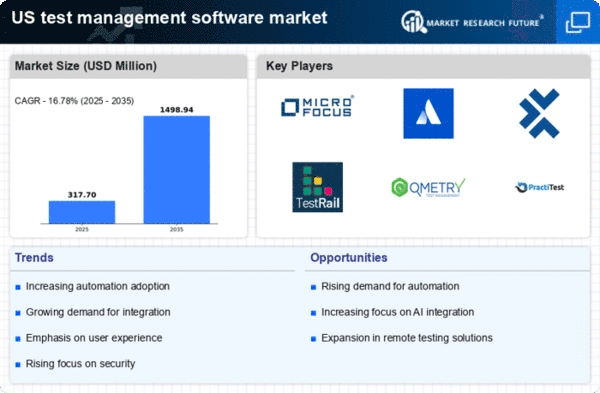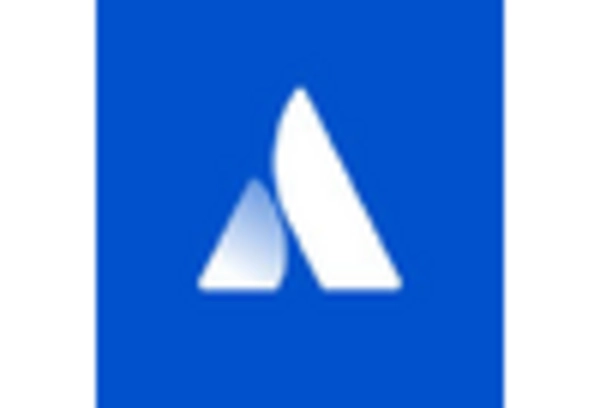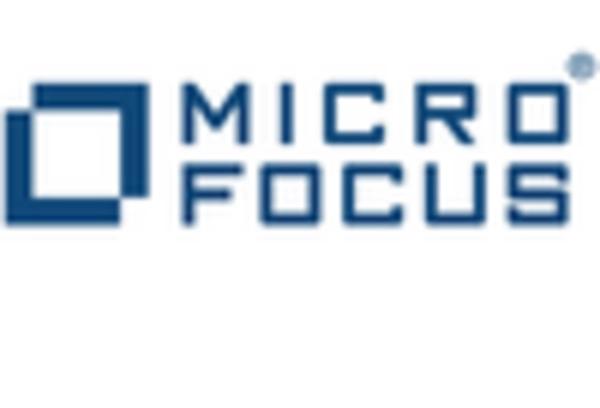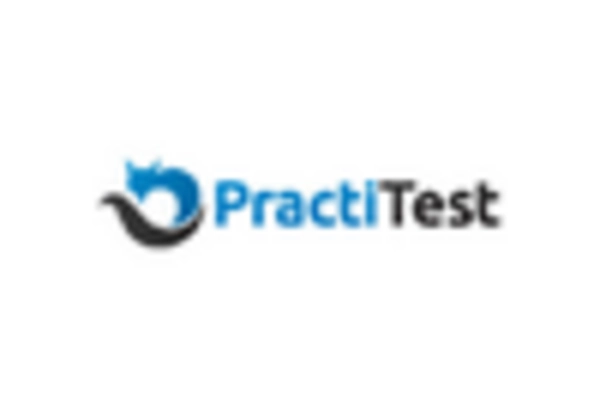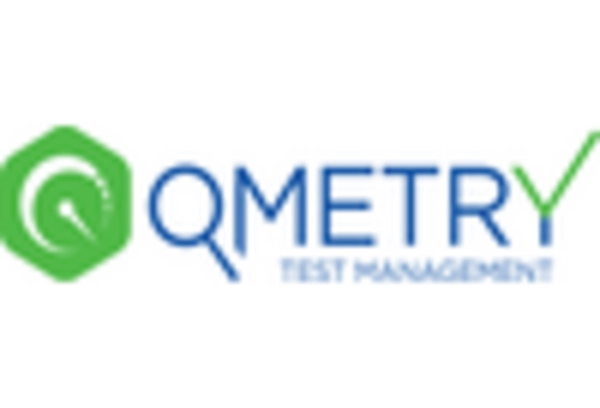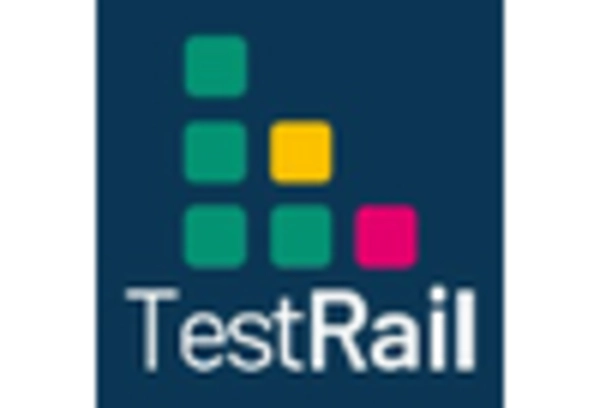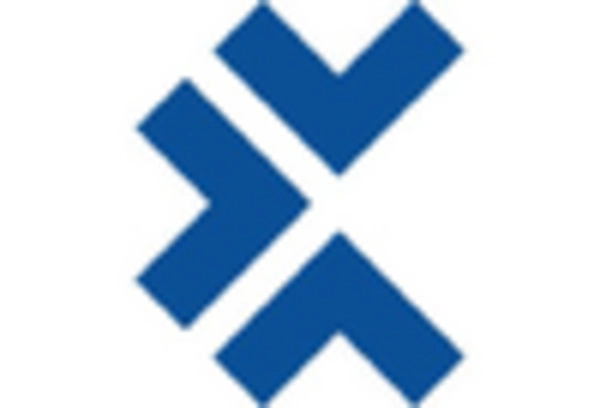Growing Demand for Automation in Testing
the test management-software market is experiencing a significant increase in demand for automation tools. Organizations are increasingly recognizing the efficiency and accuracy that automated testing brings to the software development lifecycle. This shift is driven by the need to reduce time-to-market and enhance product quality. According to recent data, approximately 70% of companies in the US are investing in automation technologies, which directly influences the growth of the test management-software market. As businesses strive for agility and responsiveness, the integration of automated testing solutions becomes essential, thereby propelling the market forward. Furthermore, the ability to conduct continuous testing aligns with the agile methodologies adopted by many organizations, further solidifying the role of test management software in facilitating these processes.
Rising Complexity of Software Applications
The increasing complexity of software applications is a significant driver for the test management-software market. As applications evolve to incorporate advanced features and functionalities, the need for comprehensive testing solutions becomes paramount. This complexity necessitates robust test management tools that can handle diverse testing scenarios and ensure thorough coverage. In the US, the software development landscape is characterized by a growing number of platforms and devices, which complicates the testing process. Consequently, organizations are investing in sophisticated test management software to streamline their testing efforts and mitigate risks associated with software failures. The market is likely to expand as companies seek to enhance their testing capabilities to keep pace with the rapid evolution of technology.
Emphasis on Quality Assurance and Compliance
Quality assurance and compliance are increasingly becoming focal points for organizations, thereby driving the test management-software market. With the rise of regulatory requirements across various industries, companies are compelled to adopt rigorous testing protocols to ensure compliance. This trend is particularly evident in sectors such as finance and healthcare, where adherence to standards is critical. As a result, the demand for test management software that facilitates compliance tracking and reporting is on the rise. In the US, organizations are allocating substantial budgets towards quality assurance initiatives, with estimates suggesting that spending in this area could reach $5 billion by 2026. This heightened focus on quality assurance not only enhances product reliability but also fosters customer trust, further propelling the market.
Shift Towards Agile and DevOps Methodologies
The shift towards agile and DevOps methodologies is significantly influencing the test management-software market. Organizations are increasingly adopting these frameworks to enhance collaboration between development and operations teams, thereby accelerating the software delivery process. This transition necessitates the use of test management tools that can seamlessly integrate with agile practices and support continuous testing. In the US, a substantial number of companies are embracing DevOps, with reports indicating that over 60% of organizations have implemented some form of agile methodology. This trend is likely to continue, as businesses seek to improve their responsiveness to market demands. Consequently, the test management-software market is poised for growth as organizations invest in tools that facilitate agile testing and foster a culture of collaboration.
Increased Focus on User Experience and Customer Satisfaction
The test management-software market is being driven by an increased focus on user experience and customer satisfaction. As organizations recognize the importance of delivering high-quality software that meets user expectations, the demand for effective testing solutions rises. Companies are prioritizing user feedback and usability testing to ensure that their products resonate with customers. In the US, the emphasis on customer-centric development is evident, with many organizations allocating resources to enhance user experience. This trend is likely to propel the test management-software market, as businesses seek tools that enable comprehensive testing of user interfaces and functionalities. By investing in test management software, organizations aim to improve product quality, thereby fostering customer loyalty and satisfaction.


